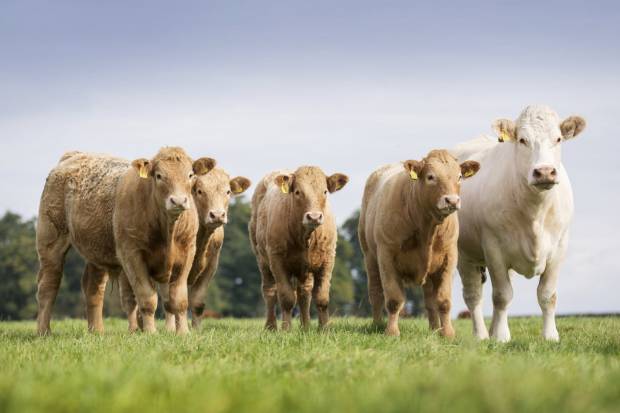NBA Weekly Briefing
27th April 2020
Region: National

The country is now a calendar month into lockdown, and life in its adjusted form continues. Anti-social has gone from being something undesirable to something approaching normal and just nipping to the supermarket is frowned upon. Numbers have played a huge part in tracking the path of the virus in the last few weeks, and as the significant numbers appear to have, if not improved, then at least stabilised in recent days, optimism is beginning to grow. The light at the end of the tunnel is far from bright, and still some way in the distance, but it is there. For some, when we emerge into the sunlight, life will not be the same again, and our thoughts turn to those members - and the farming family in general - who have lost loved ones or who have loved ones caught up in this pandemic.
Our industry is adjusting as quickly as it can. Once it has started, the beef food chain process is inexorable; the meat we are consuming this week started production three years ago or more; beef production cannot be turned on and off like a tap. Live markets have been running throughout the lockdown, and breeding sales will commence next week.
Currently, store cattle trade remains buoyant, whilst the trade for finished cattle has been squeezed somewhat – this appears to be a conundrum with no logical answer, and some of our members will be happy, others less so. Huge efforts have been concentrated on promoting red meat in the last two weeks - all the Levy Boards have created advertising copy and social media campaigns in record time, and we appreciate their efforts in supporting the industry to address this solution to carcase disparity. Following our letter to Asda and Sainsbury’s two weeks ago and their initial response, we have had further communication with Asda, who confirm they are commencing a promotion on steaks and roasting joints. This can only help to improve the carcase balance issue further, and we appreciate Asda’s lead on this – there are signs that other retailers are following suit.
There are some early indications that carcase imbalance, which was brought about by the abrupt closure of the service sector, can be resolved. Perhaps, with the help of the Levy Boards and the supermarkets we can eat ourselves out of this in the short term. It is looking increasingly likely that longer-term requirements will need to be consumer-led rather than farmer-led – this debate is for another day! In the meantime, the National Beef Association continue to lobby for our industry at all levels. This week, we have been part of active discussions with the UK Government concerning beef resilience strategies - we will keep you updated when progress is made.
In the last two weeks, the NBA has commenced ongoing research into where the beef sold in our supermarkets originates from, paying particular attention to the ready meal sector. It seems that this area of beef sales would benefit greatly from improved transparency; point of source labelling is often ambiguous, and the British consumer is entitled to be able to have the origins of a product clearly and obviously labelled to help them make an informed choice. As a nation, and as an industry, we are at times quick to criticise. British beef has a loyal following of retailers who source and supply 100% UK-produced fresh beef in their UK stores; thank you to Morrisons, Marks and Spencer, Waitrose, Coop, Lidl and Aldi. Your support is appreciated.
Whether it’s due to summer approaching, or just the current wave of patriotism brought about by coronavirus, beef sales have rocketed in recent weeks, and the UK consumer appears to have reconnected with our industry. This is a fantastic trend to witness, and it is down to us as an industry to ensure that it continues. Perhaps the upsurge in the popularity of British beef - and British produce in general - is purely coincidental, and has nothing to do with a lack of propaganda from the Beef Bashing Corporation, who appear humbled by the sudden realisation that perhaps cows aren’t as environmentally damaging as they thought, and are actually quite convenient food producers.

